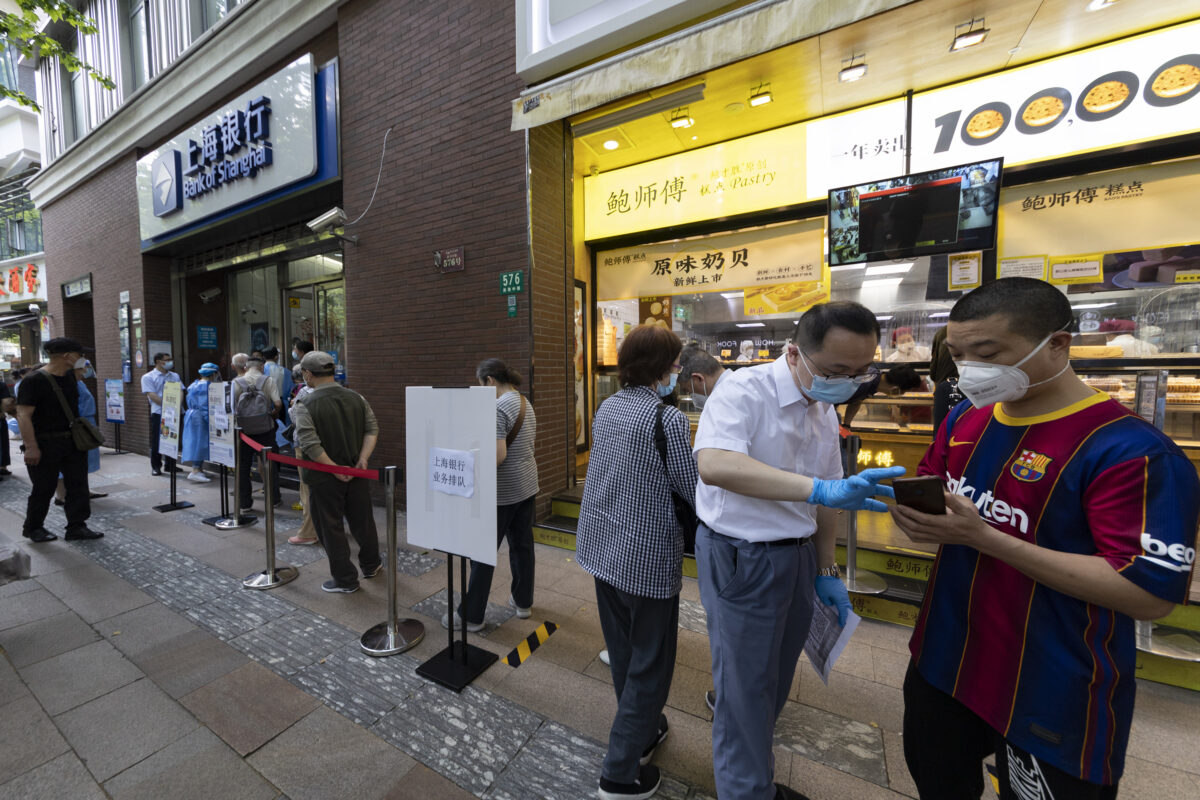The State of Banks in China
Distressed Patriotic Flag Unisex T-Shirt - Celebrate Comfort and Country $11.29 USD Get it here>>

News Analysis
The state of banks in China dominates concerns about the economy and global growth. With pictures of angry crowds outside banks and tanks on the street in one city to quell discontent about being unable to withdraw funds, it bears asking what the true state of Chinese banks is.
Officially, Chinese banks are in fine shape. Nonperforming loans are low and are disposed of in a controlled manner. Banks remain comfortably within their regulatory limits of loan growth, and deposits continue to rise. However, as with all things China, a look behind the official statistics gives cause for concern.
First, loan classifications in China fail to capture the true level of risk of defaults. Loan classification in China is notoriously pliable, so Chinese banks can set standards for loans being classified as nonperforming that would not pass regulatory scrutiny in other countries, a fact they openly acknowledge.
While an interest payment in most jurisdictions that was overdue by 90 days would change the classification, some Chinese banks have said they do not change the classification of the loan to doubtful until “the operations of the borrower have been suspended for at least half a year.” The cessation of a company’s operations would make any outstanding loans dubious.
Second, Chinese banks are highly leveraged and short on capital. The weighted reserve rate for all banks in China is now just 8.4 percent of all capital. This is a drop from over 21 percent a decade ago. This means Chinese banks have significantly less capital to absorb losses and less cash on hand for withdrawal by depositors. These reserve figures are the official numbers, so even small changes to the bad loan numbers, an issue as just noted is highly suspect, can rapidly make that 8.4 percent even smaller.

Third, banks are facing a wave of stressed borrowers right as their capital is at historic lows, and they have been fudging the data for some time. Local governments have seen revenue plunge from lower economic activity from COVID-19 and real estate. The property sector, which is responsible for around 30 percent of GDP, is under enormous pressure, with buyers and developers alike feeling the pressure. In other words, right when banks need that capital most, they have the lowest capital levels in years.
The bad news is that the choices available to Beijing are limited due to the years of pushing rapid expansion in fiscal and monetary policy to support growth. Recapitalizing the banks would require vast sums of money that would require significant inflation or devaluation of the Chinese yuan against the U.S. dollar. Due to the over-leveraged consumer and high real estate prices, consumers are in no mood to borrow more, in effect rescuing local governments and developers.
Nor is the international environment any more forgiving. For many years, China benefited from a synchronized business cycle with the United States. However, the United States is now rapidly tightening due to nearly double-digit inflation, as China is seeking to ease financial pressures on a rapidly slowing economy.
As interest rates converge between China and the United States, that places greater pressure on capital fleeing the country. Chinese banks have already been tightening limits on outward U.S. dollar transfers, but this has done little to stop leaks in capital flows out of China.
The cold reality is a major reset of Chinese asset prices, and bank capital is needed to return to a more sustainable path. Real estate in major Chinese cities is wildly more expensive relative to income, and the days of the Chinese saver are history. Now the reality is that Chinese consumers and corporates are some of the most indebted in the world, and growth is decelerating rapidly. There is no simple way out. The days of outgrowing problems are gone.





